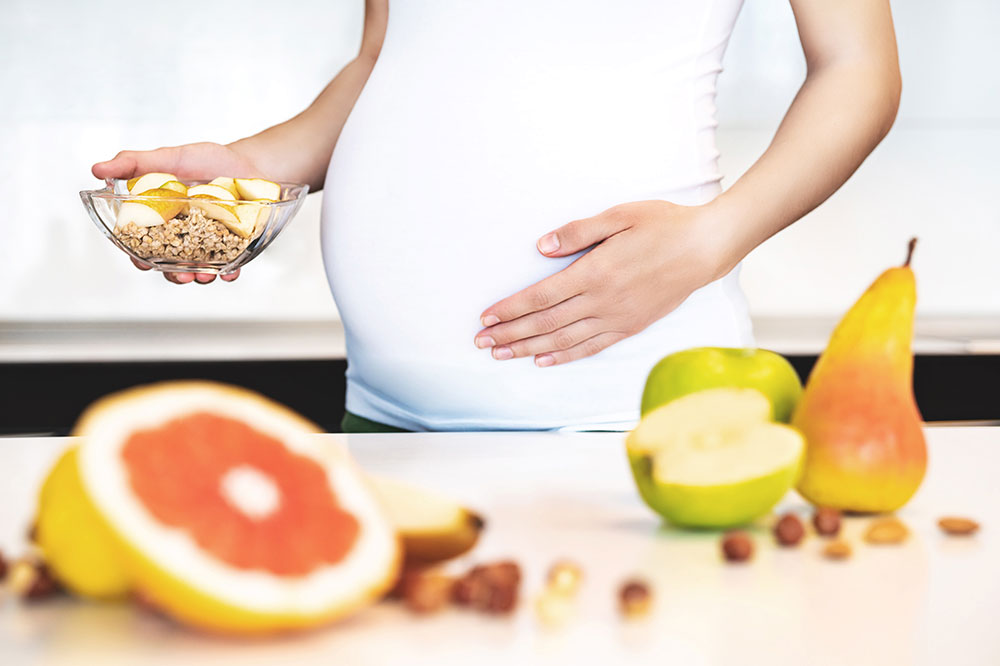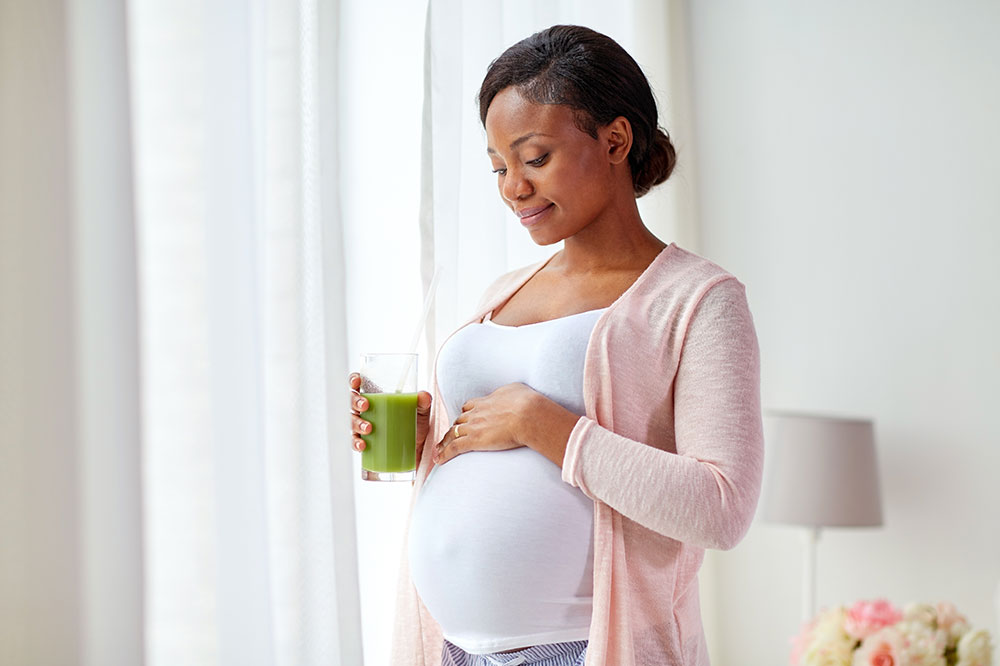Comprehensive Nutritional Guidelines for a Healthy Pregnancy
This comprehensive guide offers valuable nutritional tips for pregnant women, emphasizing balanced meals, healthy snacks, and foods to avoid. It highlights how proper nutrition supports fetal development, manages pregnancy discomforts, and promotes maternal health. From breakfast choices to nutrient-dense vegetables like leafy greens, the article details practical advice to maintain a healthy pregnancy. Avoiding risky foods and limiting caffeine and alcohol are also covered, ensuring expecting mothers can make informed dietary decisions. A must-read for women aiming for a healthy pregnancy and optimal fetal growth.

Comprehensive Nutritional Guidelines for a Healthy Pregnancy
Expecting mothers have unique nutritional needs that require careful attention to ensure both their health and the optimal development of their baby. During pregnancy, the body demands increased intake of essential nutrients like folic acid, calcium, and iron to support fetal growth, placental development, and maternal health. However, this does not mean simply eating more food; instead, it emphasizes making informed and balanced dietary choices. Many women mistakenly believe they need to double their calorie intake, but in reality, focusing on nutrient-dense foods is key to maintaining health and energy levels. Proper nutrition during pregnancy can reduce risks like preterm birth, low birth weight, and developmental issues. This comprehensive guide covers the most important dietary strategies for pregnant women to ensure a healthy journey from conception through childbirth.
Begin Your Day with a Nutritious Breakfast
Starting your day with a nutritious breakfast sets the tone for the rest of the day, providing the energy required to carry out daily activities effectively. Breakfast is especially critical during pregnancy, as it sustains blood sugar levels and prevents overeating later. Focus on incorporating foods rich in vital nutrients such as folic acid, iron, and calcium to support fetal development. Consider options like fortified cereals combined with fresh fruits, which are quick, tasty, and nutrient-rich. Opt for cereals that contain minimal added sugar and are fortified with essential vitamins and minerals. If morning sickness makes a heavy breakfast challenging, you can begin with a slice of whole-grain toast or a small bowl of oatmeal, gradually increasing your intake as tolerated. Remember, a balanced breakfast is a cornerstone of prenatal health and helps to maintain steady energy levels throughout the day.
Healthy Snack Choices to Manage Hunger
Between meals, choosing nutritious snacks can help manage hunger and prevent overeating at main meals. During pregnancy, light and nutritious snacks are vital for maintaining energy and supporting fetal development. Good options include low-fat or fat-free yogurt paired with fresh fruits, which offer calcium, probiotics, and vitamins. Whole-grain crackers with low-fat cheese provide fiber, protein, and calcium, contributing to satiety and nutritional intake. Raw vegetables such as carrots, celery, or bell peppers are excellent low-calorie, nutrient-dense snack choices rich in fiber, vitamins, and antioxidants. These snacks help sustain blood sugar levels and ensure a steady supply of essential nutrients. Avoid snacks that are high in refined sugars or unhealthy fats, as they provide little nutritional benefit and can lead to weight gain or gestational health issues.
Foods to Avoid During Pregnancy
Some foods and drinks can pose health risks during pregnancy due to bacteria, parasites, or toxins. Raw or undercooked meats, seafood, and eggs should be avoided to prevent infections like toxoplasmosis and listeriosis. Soft cheeses such as Brie, feta, and goat cheese should be consumed only if labeled as pasteurized, as unpasteurized varieties may harbor harmful bacteria. Raw fish and sushi should be approached with caution; if you crave seafood, opt for thoroughly cooked options. Processed meats like hot dogs, deli meats, and luncheon meats should be heated until steaming hot to kill bacteria. Additionally, raw or undercooked poultry and seafood should be avoided to reduce the risk of foodborne illnesses. Stringent food safety practices are vital to safeguard both mother and baby during pregnancy.
Limit Caffeine and Alcohol Intake
Caffeine consumption should be moderated during pregnancy, as excessive intake has been linked to increased risks of miscarriage and low birth weight. It is advisable to limit caffeine intake to less than 200 milligrams per day, roughly equivalent to one 12-ounce cup of coffee. Opt for decaffeinated coffee or herbal teas to satisfy your beverage cravings. Stay well-hydrated by drinking plenty of water, seltzer, or infused water with fruits and herbs. Alcohol consumption during pregnancy is strongly discouraged due to its association with fetal alcohol spectrum disorders, developmental delays, and other complications. Abstaining from alcohol entirely during pregnancy is the safest choice to promote healthy fetal development and avoid preventable birth defects.
Incorporate Fiber-Rich Foods for Digestive Health
Constipation is a common issue experienced during pregnancy, often caused by hormonal changes affecting gastrointestinal motility. Incorporating fiber-rich foods into your daily diet supports healthy digestion and prevents discomfort. Include a variety of foods such as beans, lentils, and whole grains like oatmeal, brown rice, and whole wheat bread. Fresh fruits like bananas, pears, and apples provide fiber, vitamins, and hydration. Vegetables such as spinach, broccoli, and sweet potatoes are not only high in fiber but also supply essential nutrients like iron and antioxidants. Adequate fiber intake promotes regular bowel movements, alleviates bloating, and reduces the risk of hemorrhoids. Drinking plenty of fluids alongside fiber-rich foods enhances their effectiveness and maintains overall hydration—a key component of a healthy pregnancy.
Maximize Nutrient Intake with Dark Leafy Greens
Dark leafy greens such as spinach, kale, broccoli, and Swiss chard are nutritional powerhouses, offering numerous benefits for pregnant women. These vegetables are rich in folate, an essential B vitamin crucial for fetal neural tube development and prevention of birth defects. They also provide iron, critical for preventing anemia, as well as calcium and magnesium, vital for bone health. Additionally, these greens are loaded with antioxidants, supporting immune function and reducing inflammation. Including a variety of leafy greens in your meals—whether in salads, smoothies, soups, or stir-fries—can significantly enhance your nutrient profile. Incorporating these nutrient-dense vegetables into your diet helps ensure both mother and baby stay healthy and resilient throughout pregnancy.
In conclusion, maintaining a balanced, nutrient-rich diet during pregnancy is fundamental for healthy fetal growth and maternal well-being. Proper meal planning, mindful snacking, and healthy food choices not only support physical health but also help in managing common pregnancy discomforts. Remember to consult healthcare professionals for personalized dietary guidance and to address specific nutritional needs. Eating well during pregnancy can set the stage for a healthy, happy motherhood experience, benefiting both mother and child in the long run.





